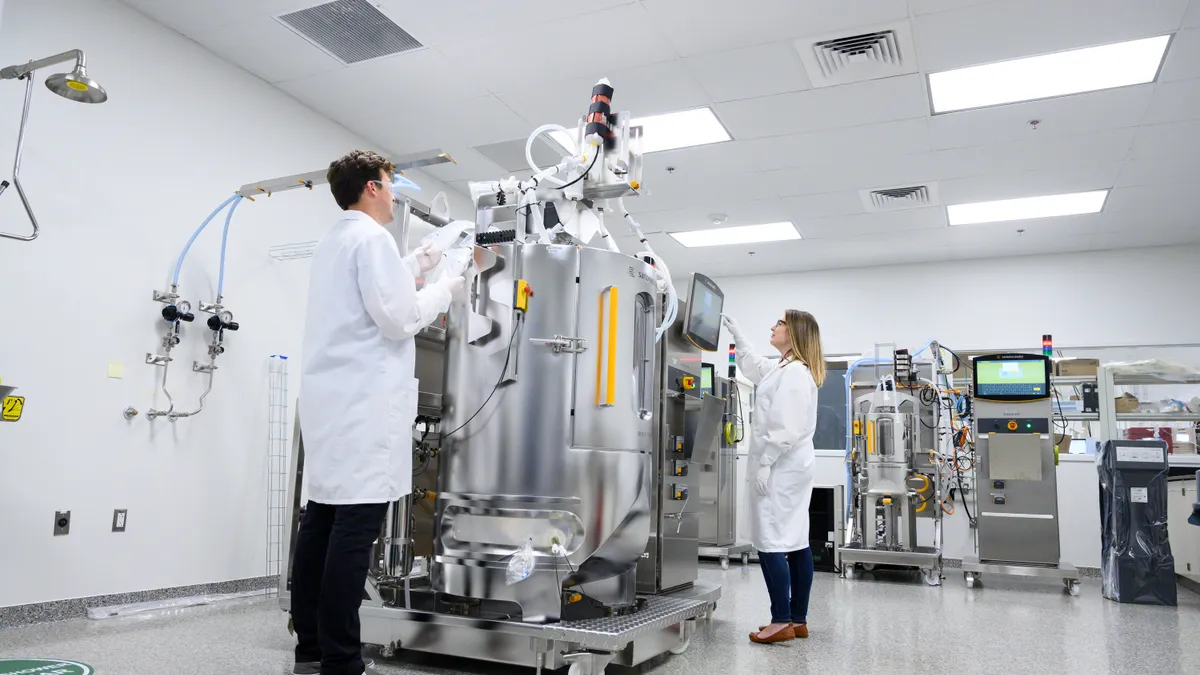UniQure, the Netherlands-based gene therapy developer, lost more than 65% of its value Monday morning after disclosing that the Food and Drug Administration seems unlikely to review — at least in its current state — an approval application for the company’s most advanced research program.
UniQure has met extensively with the FDA over the past year to ensure the agency would be receptive to its application for “AMT-130,” a gene therapy designed to treat Huntington’s disease. And the parties seemed to be in alignment. In April, the FDA gave AMT-130 a special classification that would speed up its review timeline.
Then, in September, UniQure unveiled results from a mid-stage clinical trial that wowed investors and the research community. The company said it was “eager” to discuss these data with the FDA and planned to formally file for approval in 2026.
But after a recent meeting with agency staff, UniQure now believes the FDA doesn’t see those results as adequate enough to support approval. “This is a key shift from prior communications,” the company said in a statement, and as such the timing of a submission for AMT-130 “is now unclear.”
Shares of UniQure, which traded just shy of $68 at the end of last week, were going for about $23 at market’s open Monday. They climbed higher as the morning went on, though, to hover around $33.
Huntington’s was the first genetic disease mapped to a specific chromosome. Yet, despite knowing its root cause for more than 40 years, drugmakers have struggled to create effective therapies for the nerve cell-destroying illness. That track record made UniQure’s data all the more exciting. Its trial found that, among 12 participants who were given a high dose of AMT-130 and followed for three years, signs of disease progression appeared to slow by 75%.
While the results delighted investors — UniQure’s share price tripled on their unveiling — lingering concerns about the path to approval also tempered some of the enthusiasm.
Vinay Prasad, head of the FDA office that regulates gene therapies, has criticized the ways in which the agency has tried to expedite the review of certain genetic medicines. He was also a central figure in the FDA’s request to Sarepta Therapeutics’ to pause distribution of Elevidys, a gene therapy for Duchenne muscular dystrophy.
Stat News late last week reported that Prasad, who, under pressure, briefly left the FDA in July only to return two weeks later, has been feuding with high-level agency staff while also amassing significantly more power.
Paul Matteis, an analyst at the investment bank Stifel, spoke to UniQure executives and confirmed Prasad was not in that recent meeting between the company and the FDA. Still, “it's hard to believe that this [UniQure] about face happened without him knowing or being involved,” he wrote in a note to clients.
Matteis added that the FDA’s new position is “very surprising” and could weigh down the shares of other companies developing gene therapies. “Really the broader takeaway here for us is that FDA — and our ability to predict the FDA — is about as uncertain as it's been in the past decade or longer,” he wrote.
A year of major shakeups in the highest ranks of the FDA continued over the weekend, as Stat and The New York Times reported that George Tidmarsh, the director of the agency’s main drug review division, has resigned amid a federal investigation. Tidmarsh has been accused of unethically using his authority to harm businesses tied to a former business partner of his, Kevin Tang, according to those reports.
UniQure isn’t the only drugmaker to be recently blindsided by the FDA. This summer, the agency rejected approval applications from Replimmune and Capricor Therapeutics, which, respectively, have been developing a melanoma treatment and a first-of-its-kind cell therapy for heart-related complications of Duchenne.
The CEOs of both companies said the FDA’s decision surprised them, especially because they had met with agency staff to make sure there was agreement on the necessary steps to tee their medicines up for approval.
Mani Foroohar, an analyst at Leerink Partners, wrote in a note to clients that the UniQure news “fuels worry on how much weight can be put on prior regulatory alignment with the agency.”





















